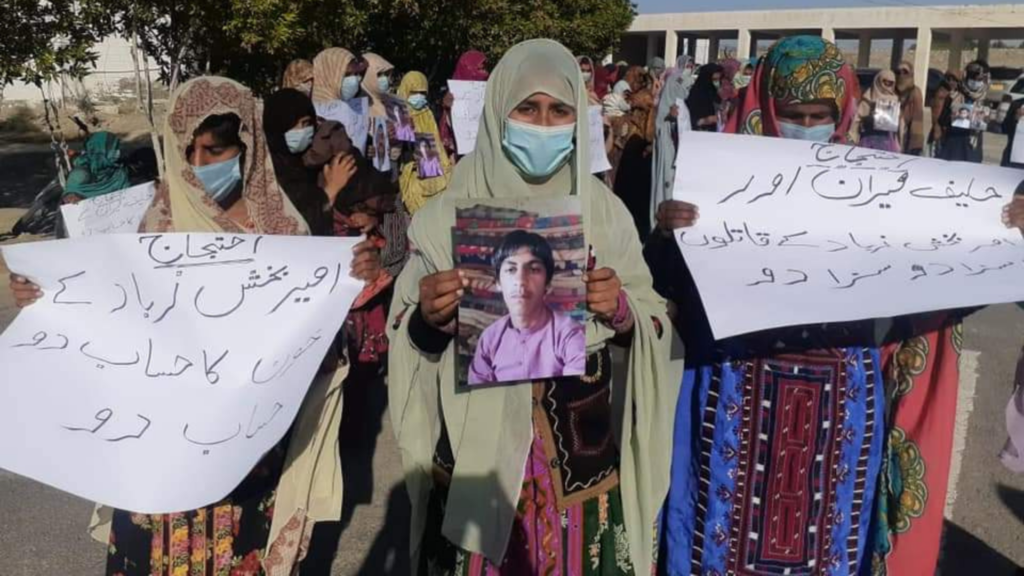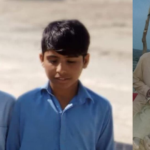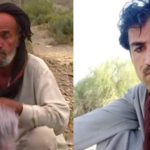The tortured bodies of two teenagers were found in Hirronk village of district Kech, Balochistan, on 07 December 2020. The deceased were Hanif Miran, 16, a resident of Singabad, Hirronk, and Amir Bakhsh Zabad, a resident of Karki of the same area. They had been abducted by armed men affiliated with the Pakistan military in the region. Both were tortured, killed and the bodies dumped under the Hirronk bridge.
In another incident, on the same day, a clash erupted between personnel of Frontier Corps, a paramilitary force, and members of armed Baloch nationalists in the mountains of Zamuran in district Kech. Three people, Mukhtar, Uzair, and Sajid, were killed in the clash.
Salal Jahangir, son of a founding member of the National Party- a political party in Balochistan, was shot by unknown gunmen on 13 December in district Mastung. He was shifted to the hospital in an unstable condition.
On 03 December, a family was forcibly disappeared from a military checkpoint in Ghick, district Panjgur. The abductees include old couple Dur Mohammad and Bibi Maryum, and their three grandchildren, Rashid Awaz, Ajmal Shah, and Samani Shah Jan. They remain missing.
During a military operation in the Chimbar Village of Kolwah in district Awaran on December 2, one person named Assa was abducted by the personnel of the Frontier Corps.
Marjan Lal Mohammad, the resident of Malikabad district Kech, was abducted by unknown armed men in a similar case, on 01 December. His whereabouts remain unknown so far.


